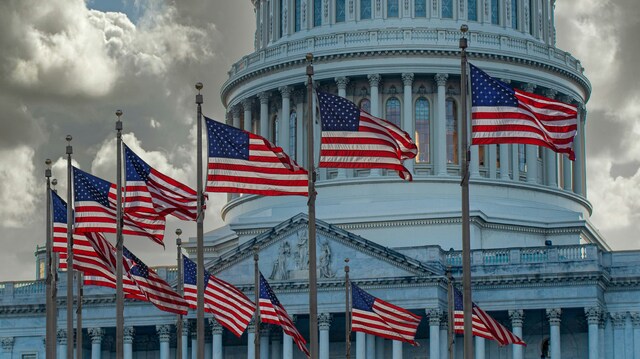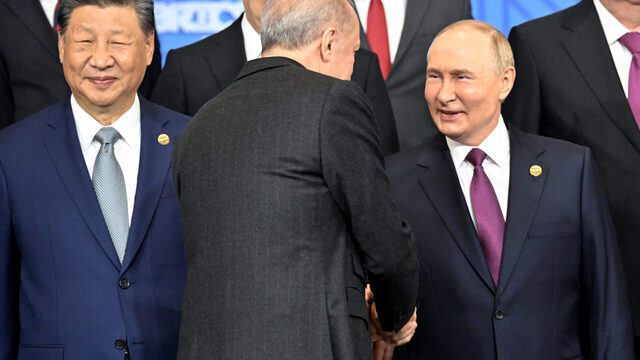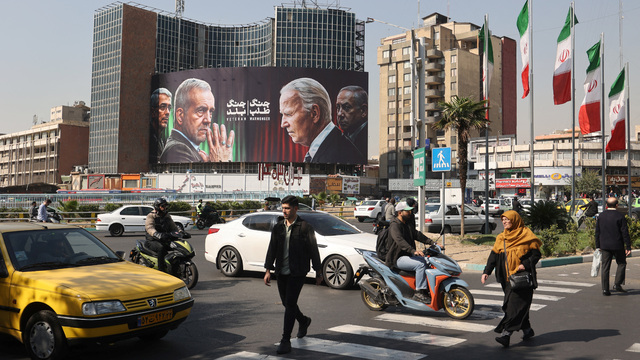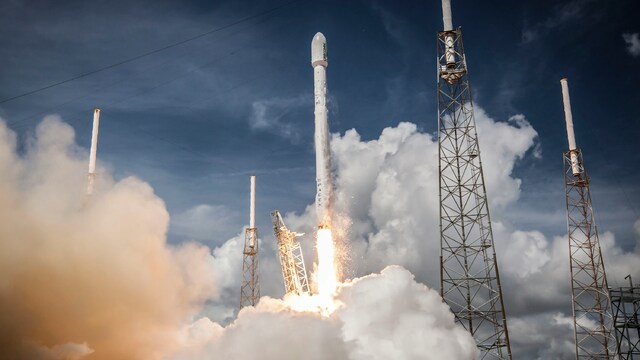Is global politics approaching a perilous interregnum?

Mezinárodní Politika has established cooperation with the Peace Research Center Prague, a newly-established interdisciplinary center of excellence at the Charles University, with focus on prevention, management, and transformation of conflicts in world politics. This article is part of the policy brief series published by the PRCP and Mezinárodní Politika. For more information, visit http://prcprague.cz
In a thought-provoking article published in Foreign Affairs in the early summer of 2017, John Ikenberry claims that “the world's most powerful state has begun to sabotage the order it created. A hostile revisionist power has indeed arrived on the scene, but it sits in the Oval Office, the beating heart of the free world”.
The suggestion put forward by the renowned US political scientist has also been considered noteworthy by the organizers of the prestigious Munich Security Conference, who have included it in the 2018 Munich Security Report. This traditional summary of the current and future state of global security has been in general highly critical of current US foreign policy. It should be added that similar criticism can be found in many other studies, essays and public speeches. They all note that an unexpected crack has occurred in the edifice of the contemporary world order: the country that has played a decisive role in shaping the post-war international system and, for more than seven decades, has been crucial to its functioning, is abandoning this role, and withdrawing into “neo-isolationism”: a combination of more aggressive policy (uncoordinated with allies in NATO and the EU) and unilateral preferences for US economic interests.
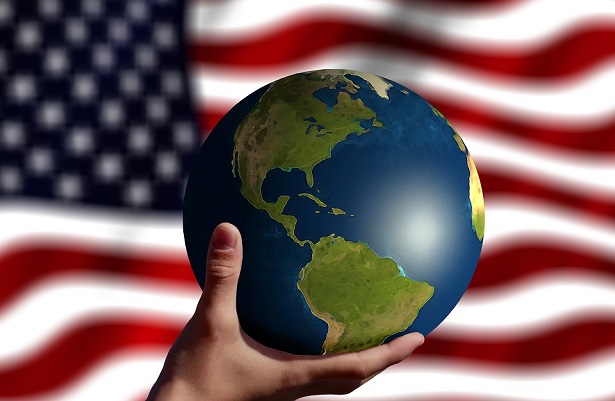
source: maxipixel.net
DECLINE AND WITHDRAWAL OF THE US?
Trump's political steps since his accession have indeed been radical. Within a year and a half, the US has withdrawn from the Transpacific Partnership, a multilateral AsiaPacific trade deal. The same step has been taken with regard to the Paris Climate Agreement. The United States has also shown a negative attitude toward the UN, leaving UNESCO and threatening to lower its contribution to the UN budget. The United States has withdrawn from the Iran nuclear deal (JCPOA), causing a clash with its other signatories, including US allies such as France, Germany, the United Kingdom and the European Union, and also with Russia and China. The United States is also beginning to boycott the global trade system based on the rules defined by the World Trade Organization (President Trump has blocked appointments to one of its crucial bodies – the Appellate Body). New American tariffs on steel and aluminium imports (25% and 10%, respectively) have all but started a trade war between the United States and the European Union and China. The decision to relocate the American embassy in Israel to Jerusalem has also been taken unilaterally, without regard to UN resolutions and without consulting US allies.
Richard Haass, President of the US Council on Foreign Relations, has commented that Trump's “America First” strategy is incompatible with the existence of a liberal world order. We may be witnessing a paradox largely unpredicted by western politicians and experts: while undoubtedly diminishing American global influence and soft power, the decisions taken by Trump have not significantly affected the military and economic power of the United States. No country in the world can as yet be considered its true equal. Meanwhile, America is clearly unwilling to shape multilateral global affairs. But might not this new attitude, at least to some extent, be simply the product of America's amassing economic problems?
DECLINE OF THE WEST?
The most serious threats the United States had to face in the twentieth century were external ones: the Japanese Empire and Nazi Germany during the Second World War; the Soviet Union for the following four decades of the Cold War. While the tackling of these earlier threats definitely put pressure on the U.S. economy, the economy was robust and bore it well.
But in the early 1990s, the alleged unipolar moment of history, Paul Kennedy warned that while the aggregate American wealth might be considerable, its unequal distribution was causing huge domestic problems: a large current account deficit and a need for international loans. Since then, a protracted period of slower growth has only compounded these problems, making it harder for the United States to juggle its multiple financial obligations: funding its military security, catering to the welfare needs of its population and repaying its debts. Kennedy also said that no leading world power with its economy in a relative decline could maintain its prestige indefinitely. Unless the United States as a whole underwent a major change, it would be it would be unable to cope with the challenges of the 21st century, he concluded. Professor Martin Feldstein of Harvard University has recently drawn attention to the enormous and fast-growing budget deficit of the United States. Under existing law, the United States must borrow 800 billion dollars in 2018; in 2028 the figure would climb to 1.6 trillion. The deficit-to-GDP ratio would increase from 4 per cent to 5.1 per cent over the same period, and the federal government debt would reach 28 billion, compared to this year's 16 billion. Moreover, in 2016, the United States had a trade-deficit with 101 countries of the world. This multilateral external imbalance is rooted in America's chronic domestic saving problem. Is there not a danger of a “debt explosion” that could trigger a decline of the American empire?
EUROPEAN CRISES
But the crisis phenomena has a wider background that does not concern only the United States but the West as a whole, including Europe. This first started to become apparent during the financial crisis of 2008-2009. According to Timothy Garton Ash, Director of the European Studies Centre at St. Anthony's College, Oxford, this event triggered three other, parallel crises: the crisis of capitalism, of democracy and of the European integration project.
Although the crises have been taking on various forms, in both Europe and the United States they are closely associated with the growing political and socioeconomic tensions within democratic societies. The growth of inequality has been a particularly alarming phenomenon. The US economist and Nobelist Joseph Stiglitz has noted in his works that the ever-deeper welfare inequalities undermine economic growth and democracy. This leads to a crisis of governance and a clear ascendancy of populist or nationalist parties and politicians. A number of other long-existing crises also play part in these developments.
Europe's principal problem in the late 2000s was the financial crisis. Since 2010, the financial crisis has been compounded by the European sovereign debt crisis. In addition, some parts of Europe are going through an economic slump that forces many countries to implement a series of reforms. No less serious is the crisis of trust in European integration and cooperation, strongly linked to the problems of the single European currency.
Since monetary union has not been underpinned by a full integration of economic and fiscal policies, it has failed to bring about the expected gradual convergence of the Eurozone economies. Instead, it has led to their divergence, jeopardizing the whole integration project. While massive financial interventions have helped avert a collapse of the euro and the banking system, Europe still has some “risky” countries – Italy, the third biggest EU economy is an example. The position of the EU has also been rocked by the departure of the UK after the June 2016 referendum. The unstable situation in Europe's backyard limits its options and room for maneuvering. Europe is not surrounded by a circle of stability as was the aim of its earlier strategies, but rather by conflicts and uncertainty. This in turn breeds conflicts within the Union itself, as could be seen in the major disputes over illegal migration.
At the same time, Europe increasingly finds itself politically at odds with the United States. The “neo-isolationist” tendencies in American politics have not gone unnoticed. Following her return from the first G7 summit attended by Donald Trump (Taormina, Italy, May 2017), the German Chancellor Angela Merkel declared rather unprecedentedly that the time when Europeans could fully rely on others was over and that Europe must begin to shape its own destiny. Although Merkel never specified that “others” meant “the United States”, the context was sufficiently clear. For the first time since the early presidential years of Charles de Gaulle, a major western leader stated unequivocally that Europe could no longer rely on American leadership. In late September 2017, the French president, Emmanuel Macron, outlined his own vision of Europe's future, openly admitting that Europe faced gradual and inevitable disengagement by the United States. The most recent G7 summit (La Malbaie, Quebec, Canada, July 2018), with the unprecedented disagreement of President Trump concerning the joint communiqué confirmed this conclusion.
Can this European attitude be seen as another signal of an approaching global “interregnum”, a moment when, to quote from Antonio Gramsci's Prison Notebooks, “the old is dying and the new cannot be born”? It may be so if the United States, until now the dominant world power, is indeed losing the ambition, the willingness and the ability to lead globally.
THE CHINESE DREAM TOGETHER WITH AMERICA FIRST?
The next question to ask is who can fill the vacuum that is gradually being created by America's withdrawal. Russia might harbour such a wish but could hardly pursue it as a realistic ambition. Rather, it focuses on strengthening its position in areas immediately beyond its borders (the post-Soviet space) or in countries where the Soviet Union strongly projected its power in the past (currently the Middle East and Syria). The new leader cannot be the European Union, which may be close to being a global power but is not a fully-fledged state. It lacks the political unity, will and resources to take on political and security commitments beyond its eastern and southern backyard. The three European powers – Germany, France and the United Kingdom – also lack the requisite capacities and resources: they can aspire to nothing more than maintaining their limited political and economic clout at the regional or global level and, where it exists, also their security influence. The same can be said about two major Asian powers, Japan and India. China alone, especially with regard to its growing economic power, can realistically contemplate becoming the hegemon of the future. At the same time, it must know its limitations when taking on a greater share of responsibility for global affairs. China does, however, show the strategic will to assume such leading role in the future.
It seems, then, that the interregnum will be characterized by a “polymorphous” configuration in which the two principal actors – the old and the potential new hegemon – may be seconded by one or more of the lesser powers (Russia, Germany, France, the United Kingdom, Japan, India). The global dominance of the United States and the West as a whole will continue to erode, however. A symptom of this erosion is the declining political and economic influence of the G7. The group of the six strongest western nations and Japan is no longer setting the global political, economic and security agenda as it was twenty years ago. This is hardly surprising once we realize that China, a nonmember, has had a 50% share in global GDP growth since 2010.
China may thus begin to claim a more important role in the shaping of the global order. At the moment it is clearly using a dual strategy. On the one hand, it shows no wish to abolish or leave the existing international organizations. On the other hand, it creates new channels of international action and decision-making, as a complement but also a challenge to the existing ones. The aim is to gradually create an international order in which the West could not claim leadership.
In 2016, this trend became apparent with the China-led foundation of the Asian Infrastructure and Investment Bank. The project is attractive for a number of western countries, e.g., fourteen EU members including the United Kingdom, Germany and France. China, along with Russia, also plays a key role in the Shanghai Cooperation Organization, founded in 2001. The SCO has been expanding both its membership and its range of activities and has already become the most important international forum for the discussion of security and development issues in continental Asia.
China is likewise the economically strongest member of BRICS. Founded in 2009, BRICS serves as another tool for strengthening the intercontinental political and economic cooperation between the key non-western actors, despite the differences in their relative economic and security power. But China is also gaining influence in the G20, the group of all the world's strongest economies. Last but not least, its rising geopolitical influence finds reflection in the new “silk road” project, the Belt and Road Initiative, which represents a clear geopolitical challenge to the West.
Since the 19th Congress of the Chinese Communist Party in October 2017, Chinese policies seem to be guided by a comprehensive political doctrine that links China's domestic political, economic and social development to geopolitical and geo-economic aims. Under this doctrine, China will gradually assume a new, more prominent and active role on the global stage under the strong leadership of President and Secretary General Xi Jinping. The current moment may be perceived by it as a particularly propitious “strategic opportunity” because of America's withdrawal from global politics and the major crisis phenomena in the western world.
In this context it is worth mentioning China's strategic goal defined at the Congress: by 2050 it should become “a global leader in terms of composite national strength and international influence”. This would be the attainment of Xi Jinping's broadly sketched “Chinese Dream”, the vision of China as a rich and strong country.
It is an open question whether the parallel pursuit of the Chinese Dream and the “America First” strategy might not exacerbate the rivalry between the two major world powers, leading to conflicts on a global level and to unilateral actions on their part that will disregard the interests of the rest of the world. An “interregnum” characterized by a G2 model of this kind would indeed be perilous. Europe in particular should be keenly aware of this, since it may easily get “crushed between two millstones”, with all the political, economic and security consequences this would entail.
About the author
Miloš Balabán is a Head of the Center for Security Policy, Faculty of social sciences, Charles University, and a senior researcher at the Peace Research Center Prague (PRCP).
Mezinárodní Politika has established cooperation with the Peace Research Center Prague, a newly-established interdisciplinary center of excellence at the Charles University, with focus on prevention, management, and transformation of conflicts in world politics. This article is part of the policy brief series published by the PRCP and Mezinárodní Politika. For more information, visit http://prcprague.cz
